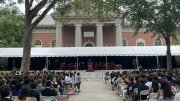On the surface, Monday afternoon’s Convocation ceremony welcoming Harvard College’s newest freshman class to campus felt strangely normal: the procession of dressed-up first-years, the singing of “Fair Harvard,” the friendly advice from speakers, the unveiling of the class banner. The only visible suggestion of the upheaval that has gripped the University for the past several months—and for the year and a half before that—was the large sign pro-Palestinian demonstrators silently held up at the edge of the crowd throughout much of the ceremony. “No rest til you divest,” it read, referring to Harvard’s Israel-linked investments.
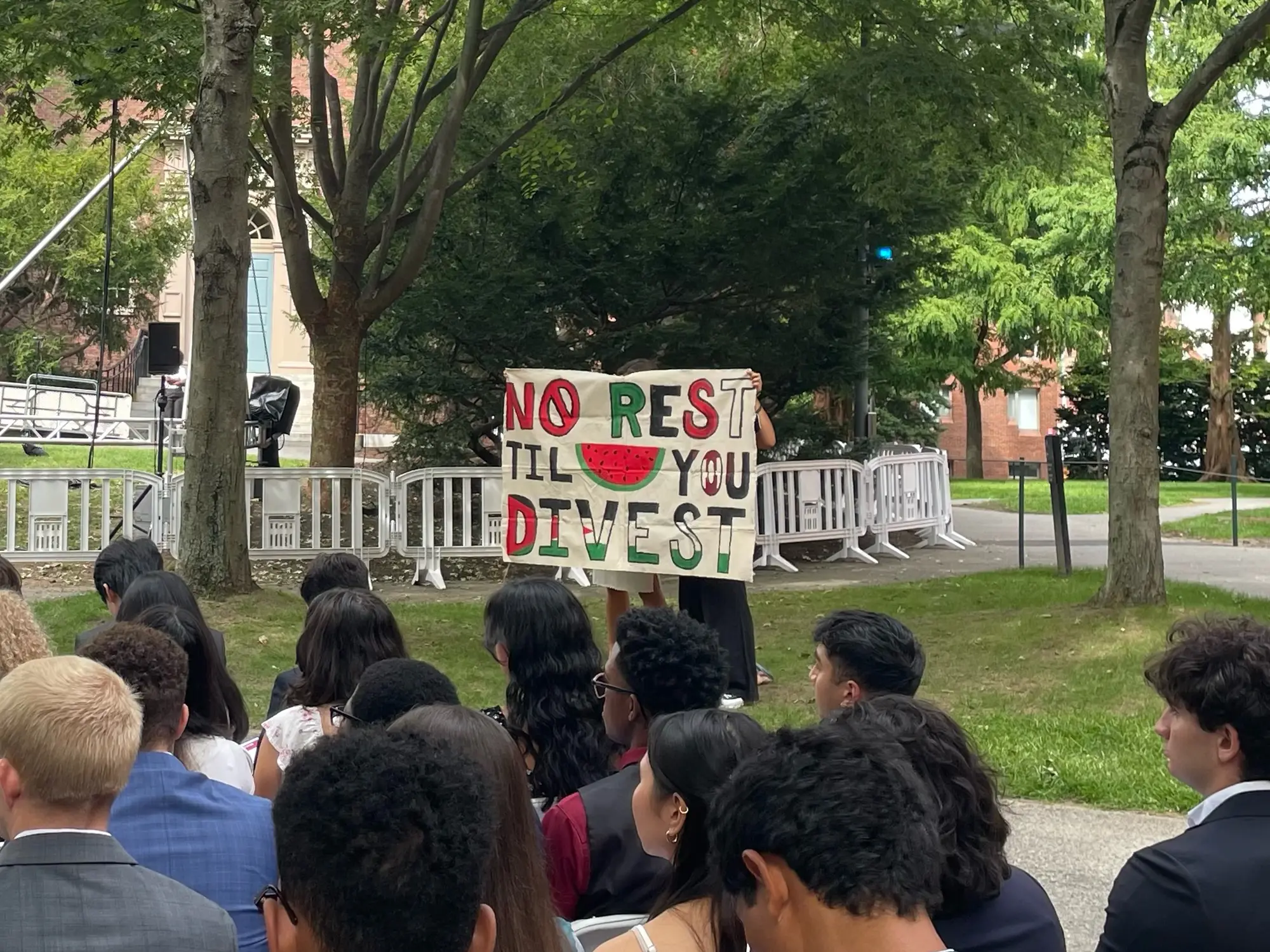
But students are joining Harvard at a moment of profound uncertainty, amid continued attacks from the Trump administration, ongoing lawsuits over federal research funding and the ability to host international students, and a now-weeks-long wait for a settlement rumored to be in the works between Harvard and the government.
For the most part, Monday’s speeches avoided addressing the turbulence directly, while making oblique reference to Harvard’s challenges. Danoff Dean of Harvard College David Deming noted the “flashing, bright spotlight on Harvard” in a speech that otherwise focused on AI, and President Alan M. Garber acknowledged the fear and uncertainty that international students face, saying, “I know some of you worried that you would not be able to make the journey here—would not be able to become part of our community. We are so glad to see you.” (A Harvard spokesman said that in the coming weeks, the University would share data on how many admitted international students were able to enroll. Last month, The Crimson reported on an Iranian student blocked from campus by U.S. President Donald Trump’s travel ban against 12 countries.)
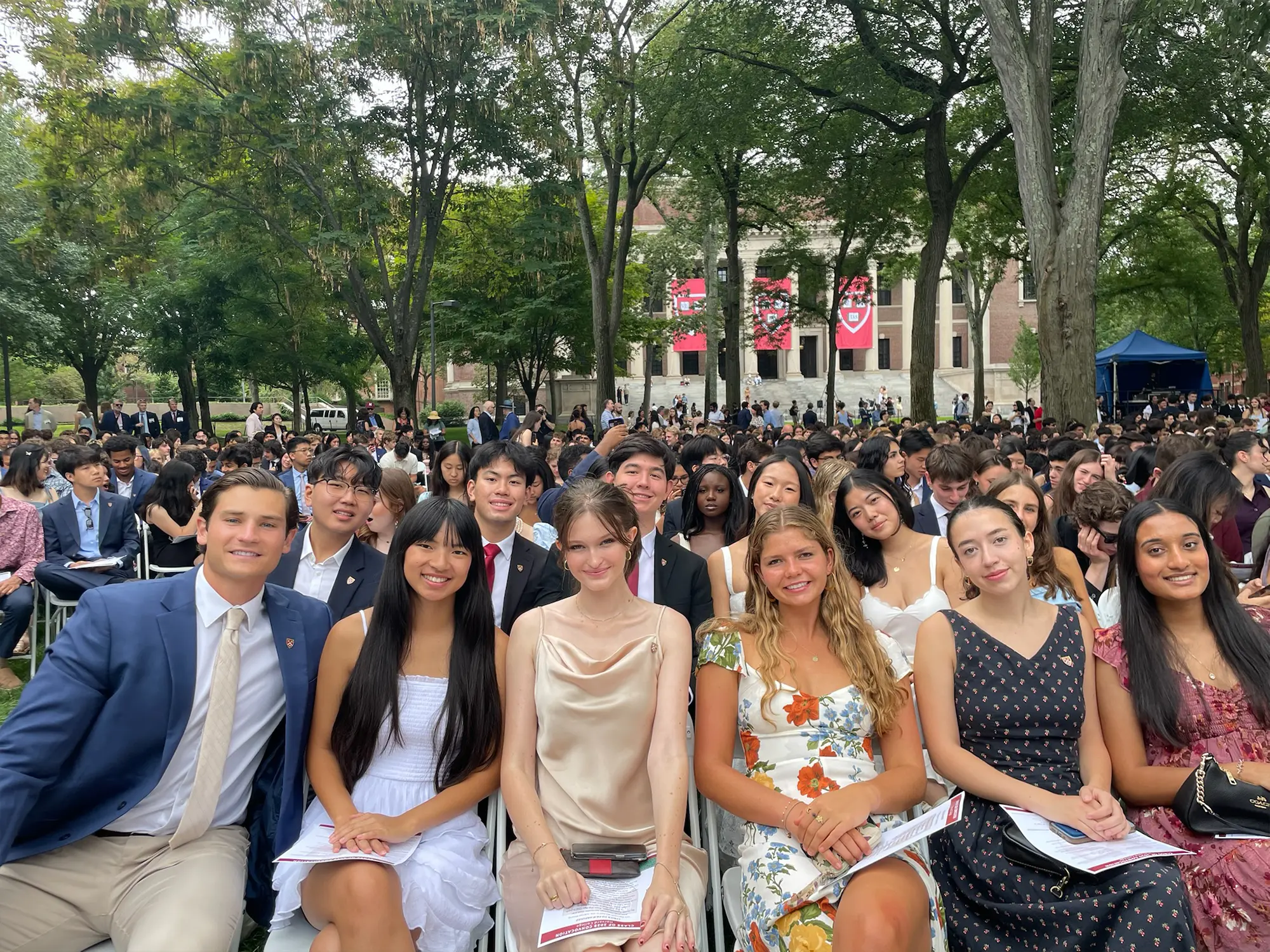
Still, as Garber and university leaders welcomed first-years from the steps of Memorial Church, nearly every speech shared an emphasis on productive dialogue amid disagreement, pluralism, open-mindedness, and belonging—themes that the University has sought to promote ever since protests over the war in Gaza broke open sharp divisions on campus.
In this way, Monday’s speeches seemed to echo recent efforts by the University to change campus culture amid accusations of antisemitism and intolerance. Last fall saw the unveiling of an Intellectual Vitality Initiative intended to promote free expression, with programming that includes orientation events; last Friday, freshmen took part in an Intellectual Vitality-sponsored event in Sanders Theatre in which Lin professor of government Eric Beerbohm led them through a series of increasingly difficult conversations to model how to agree and disagree and how to format their arguments.
“Each of you is here to teach as you learn,” Garber told students in his remarks. “You are here to share your experiences and perspectives so that our community can be one in which all people are welcomed, all ideas are given due consideration, and all beliefs are treated with respect.”
After his nod toward international students, he also said, “We trust that you—of many points of origin and many more types of backgrounds—will greet differences with genuine curiosity and sincere interest. This, of course, does not mean that you will agree with everyone. It doesn’t even mean that you will like everyone—at least at first.”
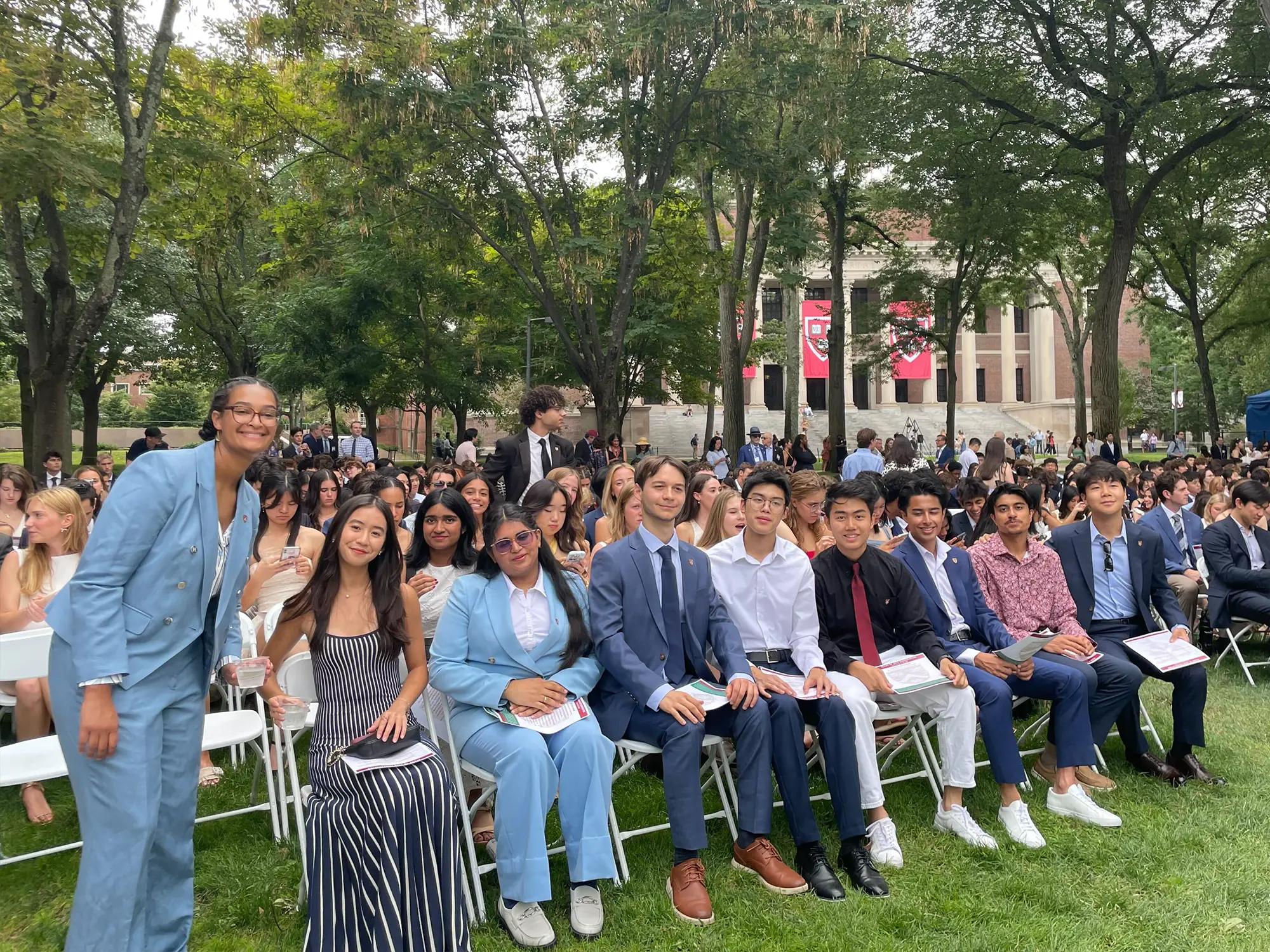
Garber, who graduated from the College in 1976, told a story about an antagonist-turned-friend in his own class and encouraged students to pursue life-altering friendships, especially ones that aren’t easy or automatic. “Those are the ones that will evolve in ways you simply can’t anticipate, that will lead to debate and argument, conflict and reconciliation, growth and change,” he said.
In a joint address, student government co-presidents Abdulla Shahid Sial ’27 and Caleb Thompson ’27 praised the value of candid conversations and forming friendships across lines of division.
“Having an open mind takes you a long way here,” Thompson said. Sial seconded: “Learning from people who stand at the opposite end of the spectrum through a civilized and respectful conversation teaches you way more than you think.”
Dean of undergraduate education Amanda Claybaugh talked about the “intellectual virtues” that she said Harvard tries to teach: humility, carefulness, open-mindedness, intellectual courage. Regarding heated issues like abortion, guns, immigration, or the war in Gaza, she said, “it’s easy to dismiss our opponents as evil or stupid, as driven by hatred or ignorance. It can be hard to be curious about what motivates them, about what it’s like to see the world through their eyes. It’s easy to nod along when we’re in a group of the like-minded. It can be hard to be intellectually independent.”
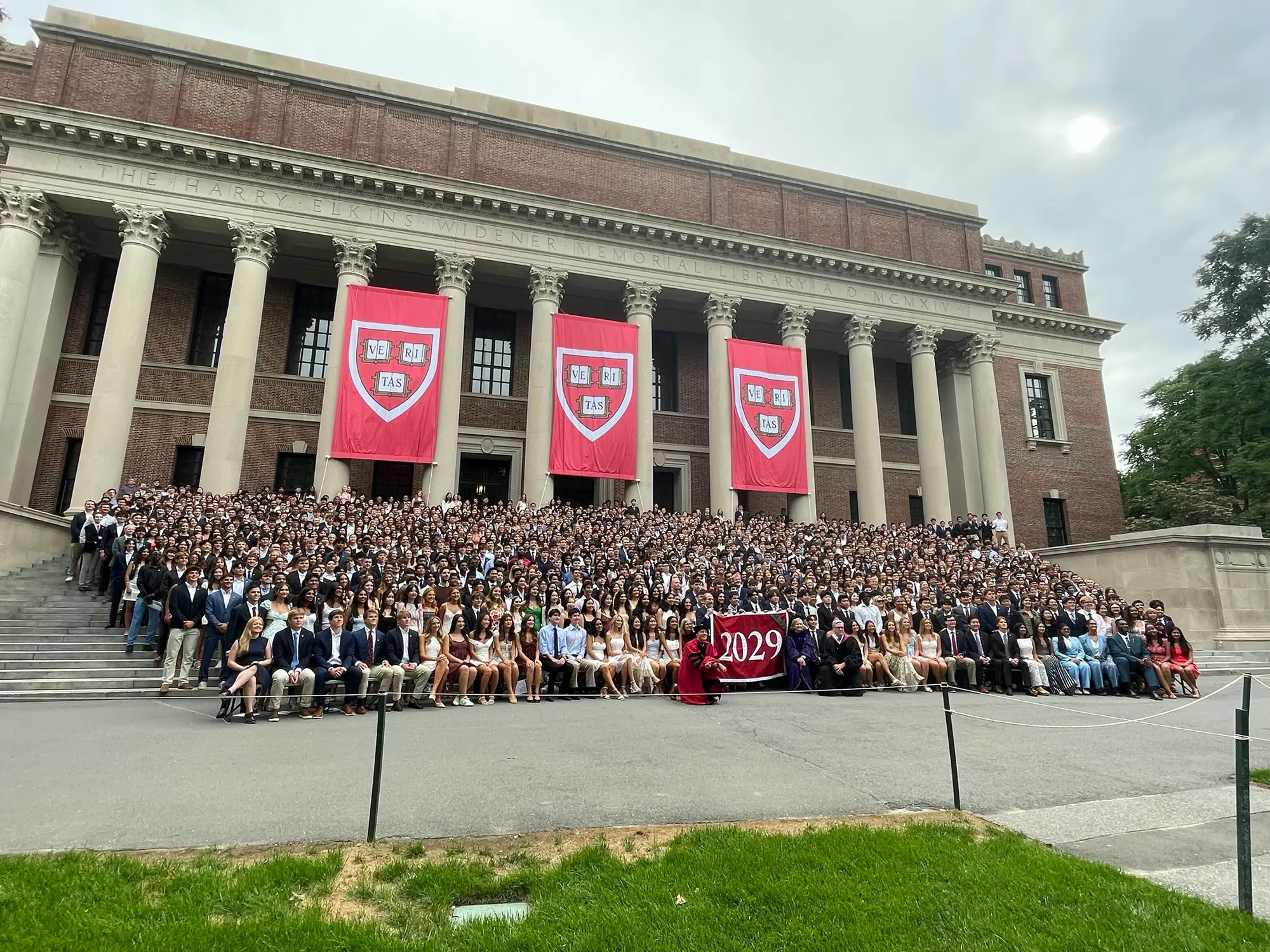
In his remarks, Dean of students Thomas Dunne gave an endorsement of Harvard’s Mattering Initiative, launched this January as an antidote to toxic achievement culture. It sponsors events to help students feel they are valued and a part of the community, irrespective of their accomplishments. Referring to the University, Dunne said, “This is the most diverse community in which any of us will likely ever live—what a gift. The goal of a residential college is for you to live and study together—bounce ideas off each other, sharpen your own arguments, which in turn will sharpen the arguments of your peers…Let your differences and your connections strengthen you, and use your time here not only to succeed, but to help create a community where everyone belongs.”
